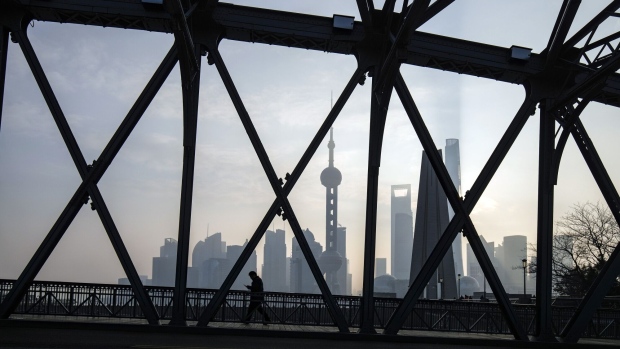Apr 10, 2024
German Firms in China See ‘Unfair’ Competition From Local Rivals
, Bloomberg News

(Bloomberg) -- Two-thirds of German companies operating in China say they face unfair competition in the market, a problem that threatens to push up their costs and erode profit margins.
That’s according to a survey by the German Chamber of Commerce in China released on Wednesday, days before German Chancellor Olaf Scholz is due to hold talks with Chinese President Xi Jinping in Beijing.
Some 65% of 150 respondents in the survey, conducted from late February to early March, said they see unfair competition in their business, primarily from Chinese private-sector firms. Large majorities said the consequences include increased pressure on costs, lower profits and a decline in market share.
The survey results underscore concerns that foreign businesses in China suffer disadvantages compared with their local counterparts. That point was repeatedly made by US Treasury chief Janet Yellen during her visit in the past week, along with warnings that ramped-up Chinese factory output will disrupt economies all over the world.
China counters that its own companies face discrimination in Western countries, citing US tariffs and a European probe into electric-car subsidies among the examples.
Read More: German Firms in China Say Economy Is on ‘Downward Trajectory’
While it didn’t define “unfair,” the German chamber’s survey listed preferential access for Chinese companies to government authorities, public tenders, and tax incentives and subsidies among areas where foreign companies are disadvantaged.
Scholz kicks off his trip to China this weekend, his second visit to the country as head of government. He’s expected to meet Premier Li Qiang in addition to Xi.
China already faces a “big threat” from the trade war with the US, and domestic demand has been weak, Maximilian Butek, the chamber’s executive director for East China, told reporters at a press conference Wednesday in Beijing to mark the release of the survey.
“They need to export products. So if they also lose the European markets, it would be a certain threat for them,” Butek added. “Now the challenge for Scholz is to explain that to China.”
(Corrects date for start of trip in seventh paragraph of story published April 10)
©2024 Bloomberg L.P.





